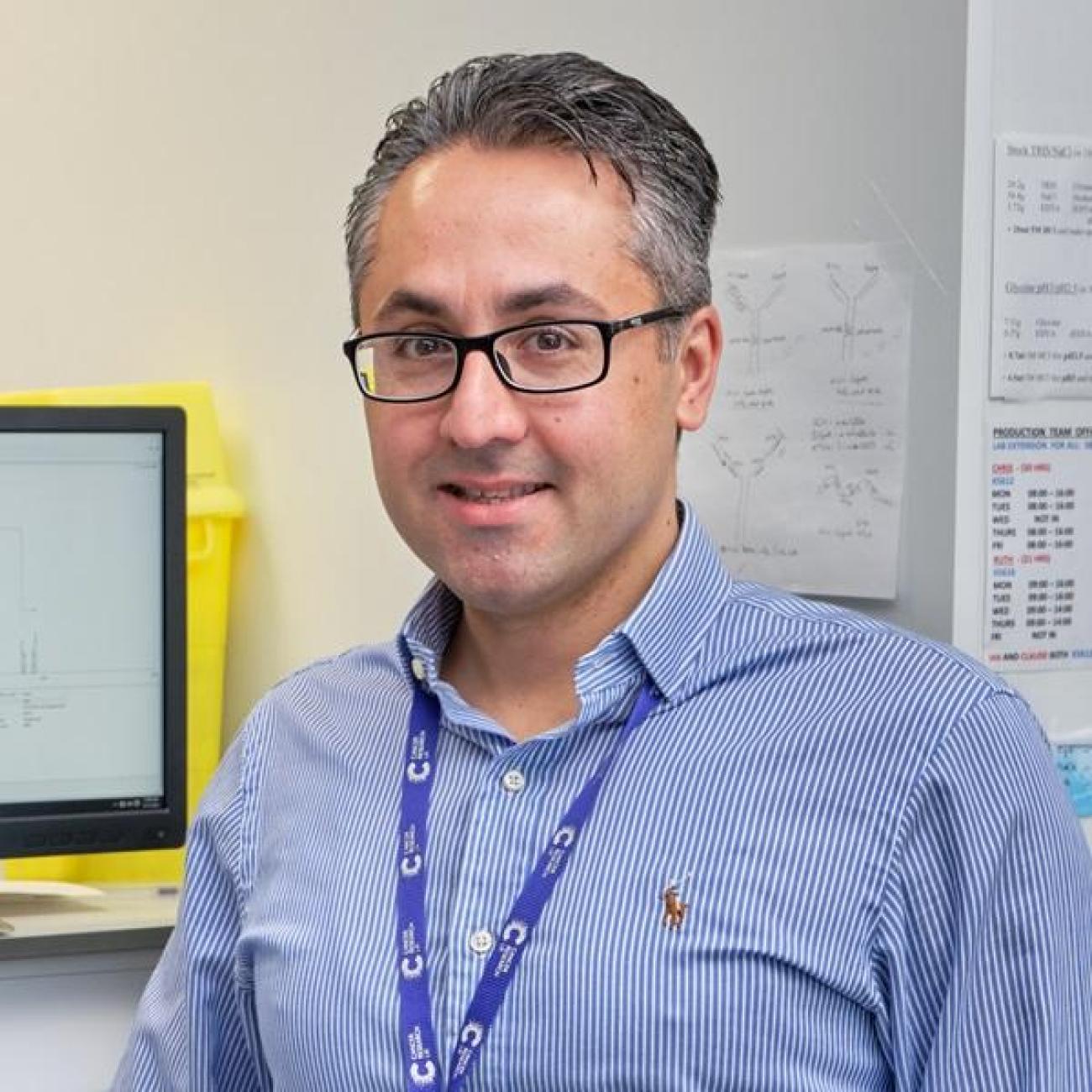About
"In the past decade, novel cancer immunotherapy strategies have contributed to the successful treatment of many end-stage cancer patients; yet we are just at the beginning of the road in curing all cancer (sub-)types. Hence, a better understanding of the fundamental interactions between the immune system and malignant cells is required to help achieve this goal."
As a cancer immunotherapy researcher, Dr Ali Roghanian is interested in studying tumour-mediated immunosuppression and the application of targeted therapies to promote an effective anti-tumour immunity. To achieve this, the group is using innovative technologies, including a combination of advanced preclinical models of human cancers (e.g., PDX, CDX, humanized) and complementary platforms (e.g., syngeneic models, cell cultures), and novel reagents (e.g., monoclonal antibodies).
Research
Research groups
Research interests
- Cancer immunotherapy
- Monoclonal antibodies
- Immunoinhibitory receptors
- Advanced pre-clinical models
Current research
Dr Roghanian’s research interests primarily focus on advancing cancer immunotherapy and the role of inhibitory receptors (e.g., FcγRIIB, LILRBs), expressed on immune cells and certain tumours. In particular his group is interested in exploring the ways in which targeting these inhibitory receptors with bespoke monoclonal antibodies (mAb) may activate tumour-associated macrophages and myeloid-derived suppressor cells against the tumour cells.
Other research projects within the group are developing novel chimeric antigen receptor (CAR) cellular therapies, to help treat ‘cancers of unmet need’ and ‘hard-to-treat’ cancers.
Collectively, these studies will help overcome therapy resistance, often seen in patients, and to enhance conventional cancer therapies by conditioning the immune system to more efficiently eradicate malignant cells. Ultimately, the group aims to translate its basic research into therapeutics that will provide more efficacious therapies, with no/reduced side-effects, for patients in the clinic.
These ongoing projects are conducted in close collaboration with the biotechnology and pharmaceutical sectors as well as prominent academic institutions.
Research projects
Active projects
Completed projects
Publications
Pagination
- 1
- 2
- 3
- 4
-
Next page
Next
Teaching
- MEDI3048- BM Research Project (2019- ): Deputy Module Leader, Annual Conference Chair, Assessor, Project Supervisor
- BIOL3052 & BIOL604- Biomedical Technology (2019- ): Lecturer, Assessor
- MEDI1030- Cardiopulmonary (2019- ): Tutor
- MEDI2046- Nervous System (2019- ): Tutor
- BIOL3043 & BIOL6039- Cellular and Molecular Pathology (2020- ): Lecturer, Assessor
- NATS3006- Drugs of the future- designing a magic bullet (2020- ): Lecturer, Assessor
- BIOL3058- Biosciences Business (2018- ): Lecturer, Assessor (Dragon)
- Integrated PhD Cancer Pathway (2018- ): Project supervisor
- Personal Academic Tutor for 5 UG Medical students
External roles and responsibilities
Biography
Dr Roghanian obtained his PhD from the University of Edinburgh Medical School; followed by a number of years of postdoctoral research at industry and academia, including a contract research organisation (Envigo+), the University of Cambridge and the University of Southampton. Ali was subsequently awarded a highly competitive Blood Cancer UK Visiting Fellowship in 2015 to pursue his research goals at the Koch Institute for Integrative Cancer Research at MIT, USA.
Ali relocated back to Southampton in 2018 to establish his independent research group at the newly-opened Centre for Cancer Immunology.
Prizes
- Koch Institute at MIT Image Award (2016)
- Blood Cancer UK Visiting Fellowship (2016)
- Faculty of Medicine Inaugural Junior Enterprise Award (2014)
- Faculty of Medicine Staff Achievement Award (2018)
